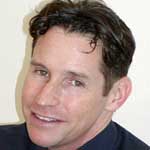-
- City Council approves transgender protections in preliminary vote
- Center to host monthly coalition building breakfasts
- GLBT Dems announce annual Pride reception
- San Diego to host international women’s event during Pride
- Mass commitment ceremony to be held at San Diego Pride festival, July 27
- Community News
-
- California domestic partners granted equal property tax rights
- Gay and lesbian protections sought in Phelps’ hometown
- Federal appeals court rules Connecticut can bar Scouts from charity list
- Supremes’ ruling on gay sex leaves Bush in ‘compassionate’ quandary
- Gay-straight alliance sues Texas school district
- Transgender man’s killer to remain on death row
- Gays seeking wedlock cautioned not to rush to Canada
- National News Briefs
- World News Briefs
commentary
Library filters, AIDS and gay studies
Published Thursday, 17-Jul-2003 in issue 812
Beyond the briefs
The Supreme Court upheld the Children’s Internet Protection Act (CIPA) last month, which prohibits public libraries from receiving federal monies for Internet access unless the libraries install software to block obscene or pornographic images, or other content deemed harmful to minors.
The ruling may go far beyond software filtering devices. To the extent that this is yet another in a line of rulings allowing government censorship of ideas, members of Congress may go on to restrict funds to GLBT studies programs, AIDS education programs and other programs they disagree with.
Though, on a positive note, Congress restricts funds to schools that engage in racial or gender discrimination, they also restrict funds to school districts and colleges that don’t want to support bias against GLBTs. For example, Congress denies funds to schools not allowing military recruiters access to student data. Congress does this to retaliate against school districts that protest the military’s “don’t ask don’t tell” policy by refusing recruiters access to students.
As the Republican Congress seeks to further the role of the federal government in our daily lives, they have found their vehicle in spending power.
The latest example was blackmailing financially strapped public libraries with an ultimatum — install software blocking Internet pornography or lose funds.
Gay and lesbian businesses and groups opposed the filtering law because the blocking software often filters out websites that deal with breast cancer, sexual orientation education and prostate cancer.
Lower courts agreed with the groups opposing the law, finding that the law was just too broad and the material censored went far beyond child pornography or material deemed harmful to minors.
But a majority of the Court upheld the law, though no clear majority agreed on the reasons why. They found that Congress has wide latitude to attach conditions to the receipt of monies.
One of the cases the Court cited in support of the decision involved a performance by artist Karen Finley. Led by Newt Gingrich, right wing members of Congress protested the piece when they learned the NEA had funded, in part, provocative art. Some performance artists spread feces and urine on themselves to show oppression. In response, Congress imposed conditions on the National Endowment for the Arts (NEA) for making grants.
The blocking software often filters out websites that deal with breast cancer, sexual orientation education and prostate cancer.
Finley sued, arguing that the restrictions violated the First Amendment because the NEA was the government and the government cannot censor an artist’s performance merely because it doesn’t like the ideas conveyed by the art.
But the Court there found that the NEA was not a public forum and had to make judgments on what art to fund.
The Court in the filtering case said a public library is the same as the NEA. It can decide what books to purchase and not to purchase.
The blocking software functions the same way as a library censor. The blocking software searches text only, not images. So it’s conceivable that sexually explicit sites with no text will evade the filtering device and wind up on Master Johnny’s screen.
As the dissents pointed out, because the software just looks for key words to determine whether a site is inappropriate for minors, sites including terms like “gay sex” could be blocked, even though the site is a Christian conservative site protesting “gay sex.”
Government lawyers argue that an adult or child can ask a librarian to unblock the site if that happens, but it’s unlikely that high school students seeking confidential access to a gay youth center website will ask a librarian to provide that access.
The reason all this is important is because Congress and the religious right have discovered spending power, having already put pressure on AIDS groups to tone down AIDS education campaigns.
A few weeks ago, the Centers for Disease Control (CDC) ordered an AIDS education group in San Francisco to tone down its HIV education program geared towards gay men. The AIDS group contends that they have to be explicit in order to reach people in high-risk groups.
This does not please some members of Congress, who have threatened to de-fund AIDS education efforts unless these programs promote abstinence until marriage. But one can hardly imagine a message like that being very useful in San Francisco.
As far as the filtering controversy, San Francisco has rejected federal funds for Internet access — about $35,000. Other cities should follow suit. Robert DeKoven is a professor at California Western School of Law in San Diego
|
|
Copyright © 2003-2025 Uptown Publications


